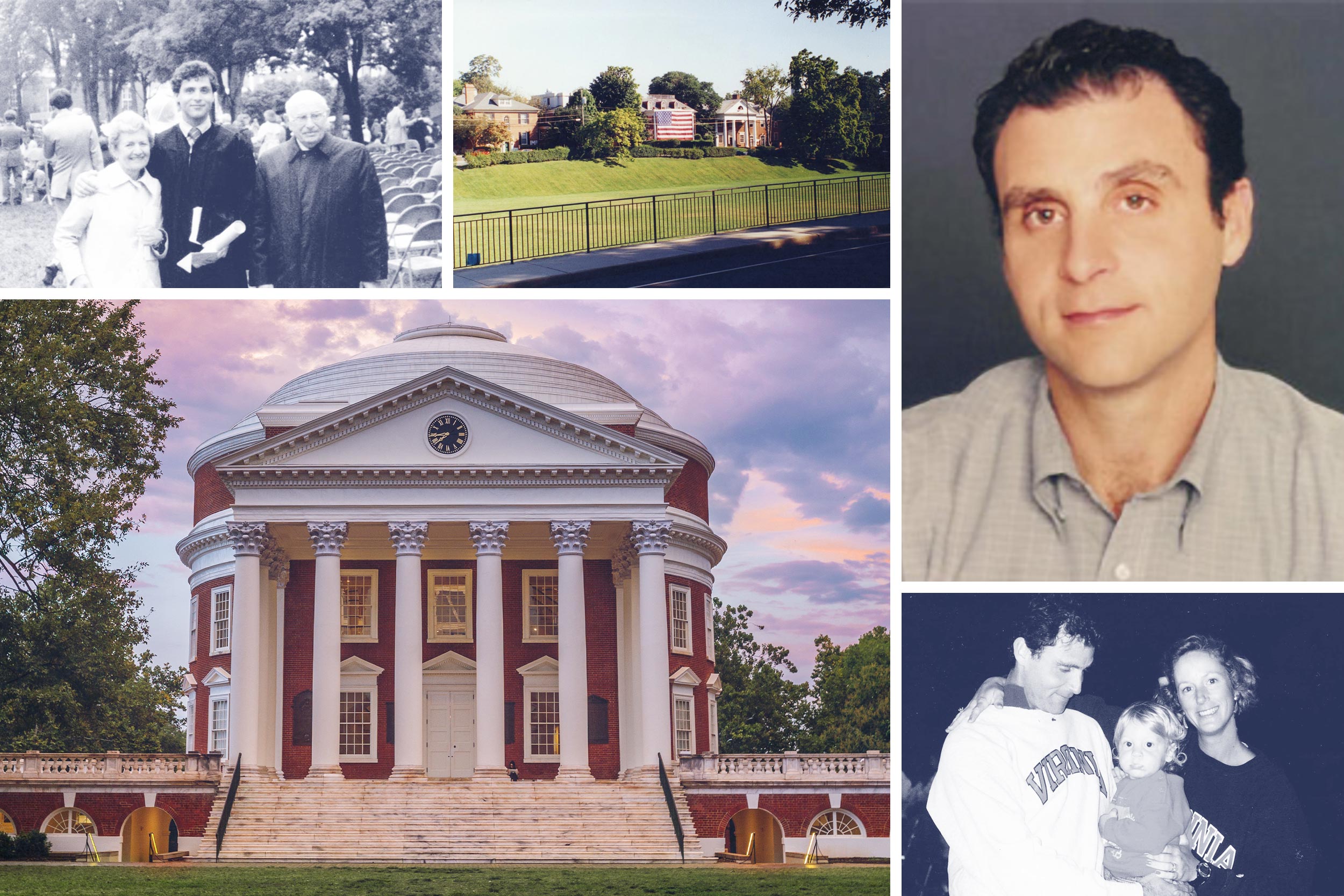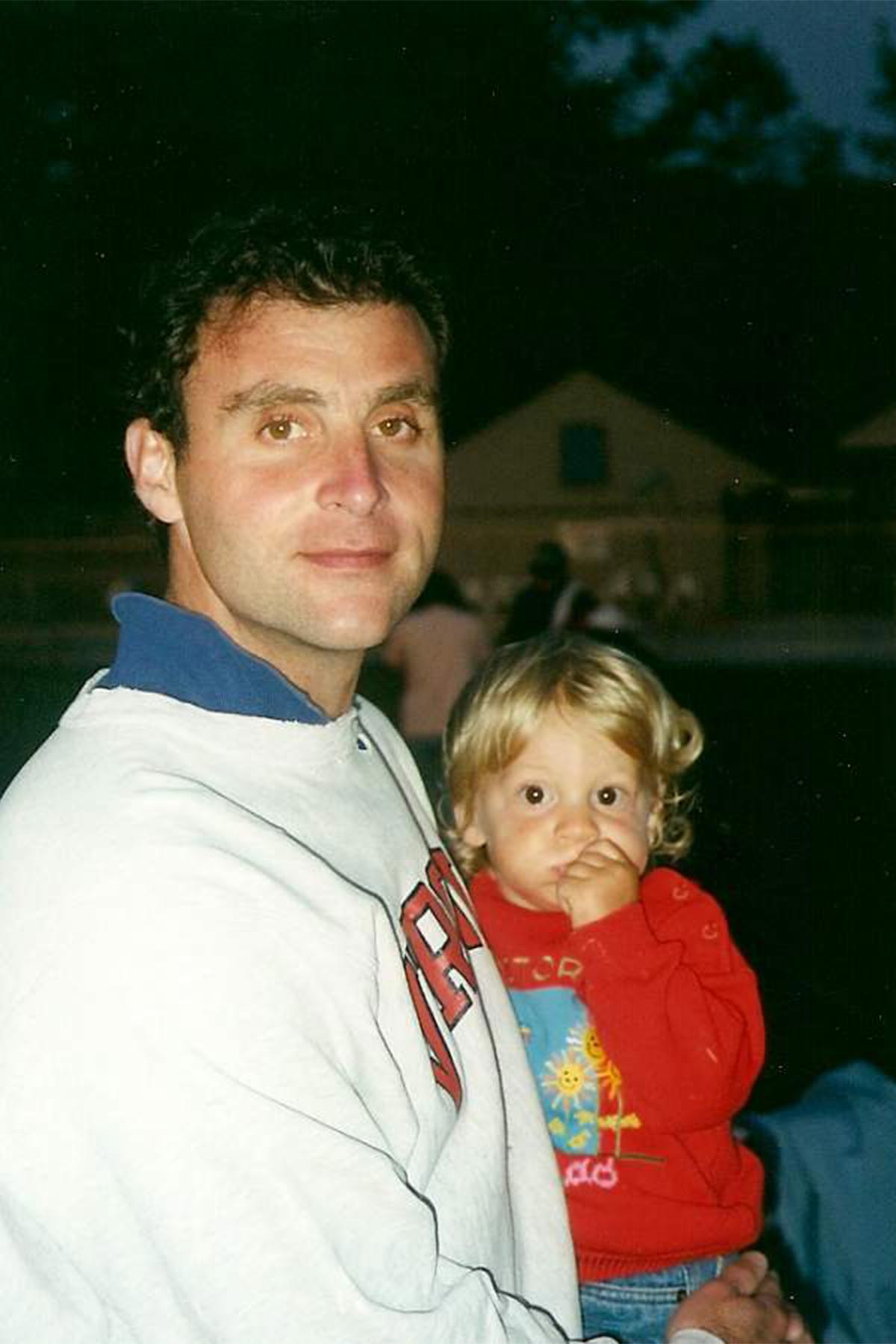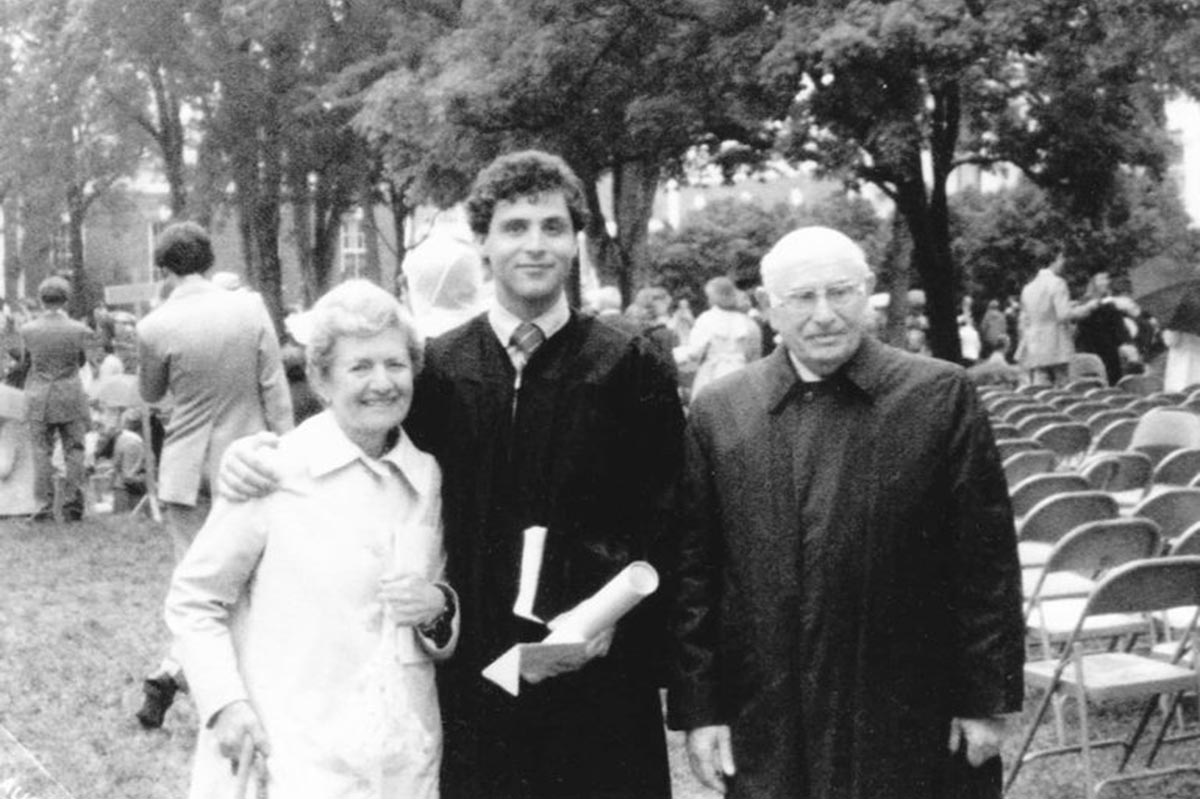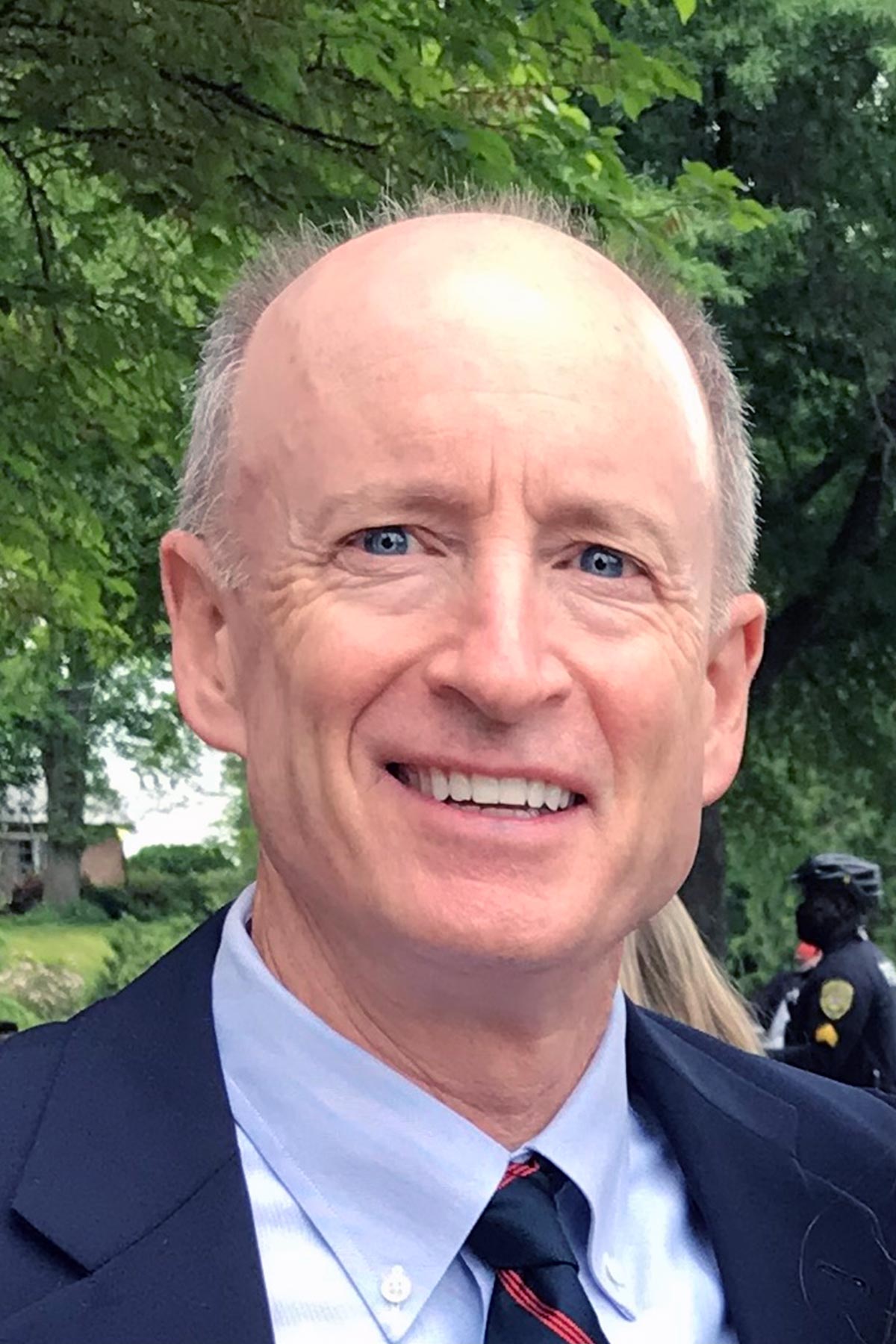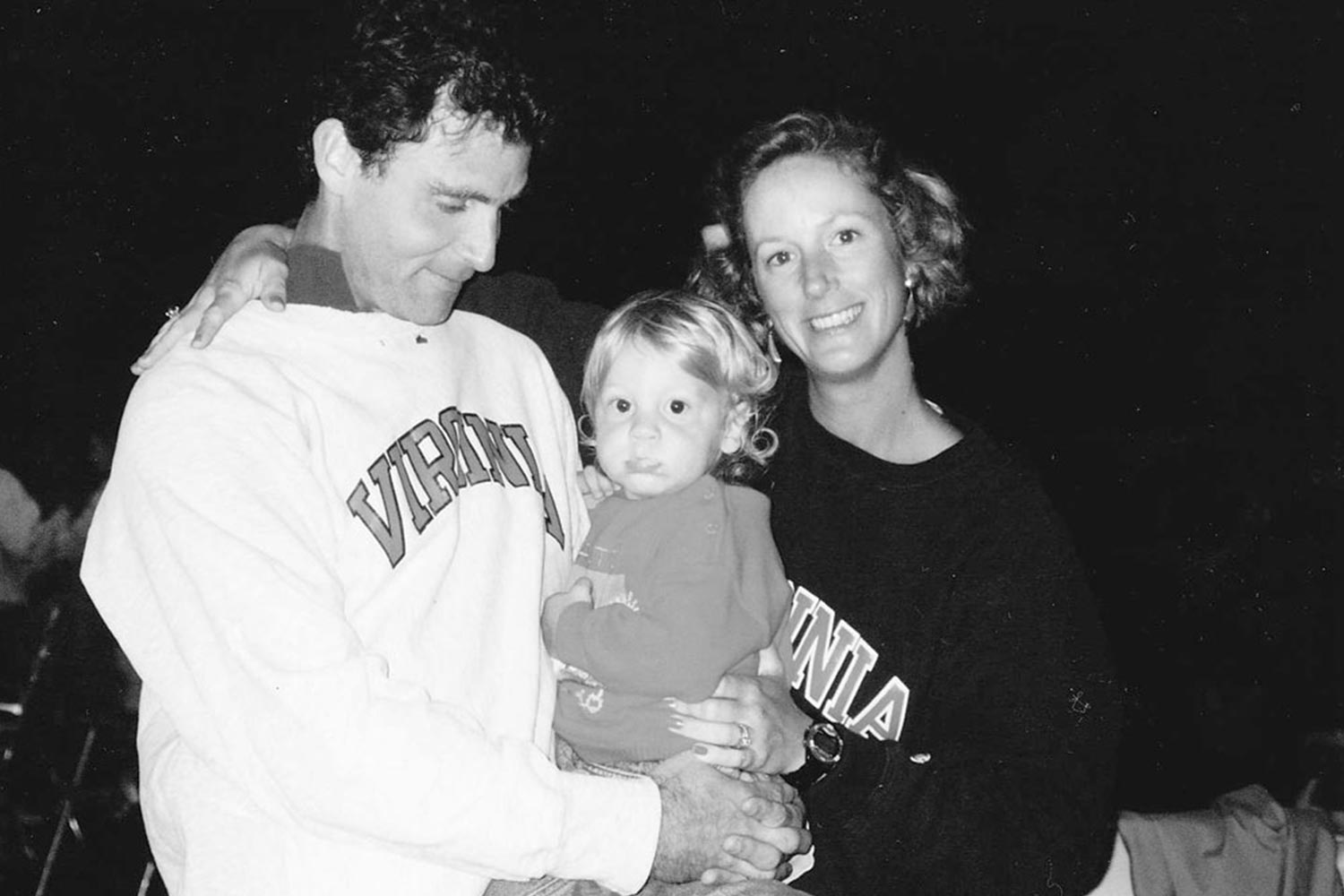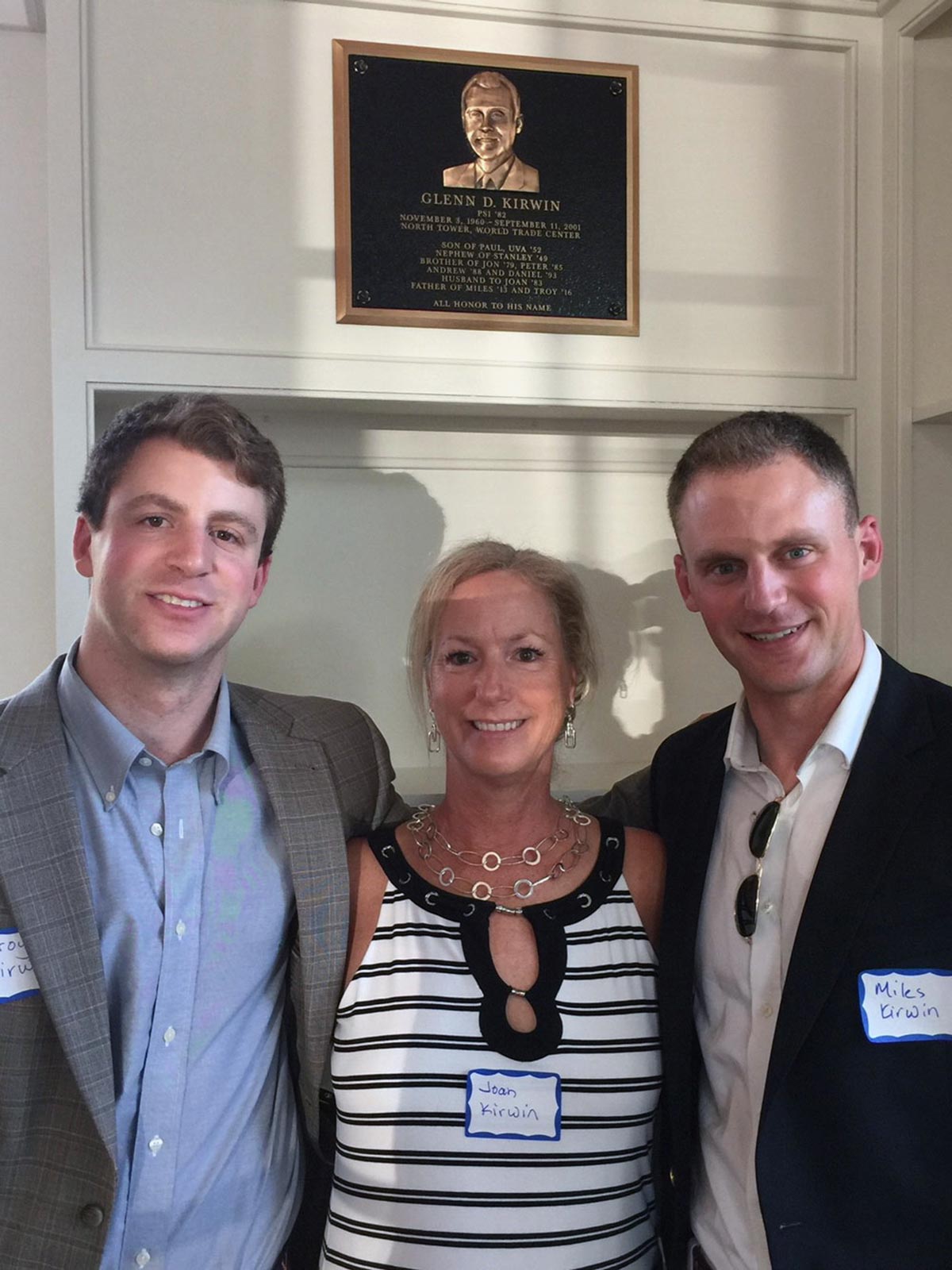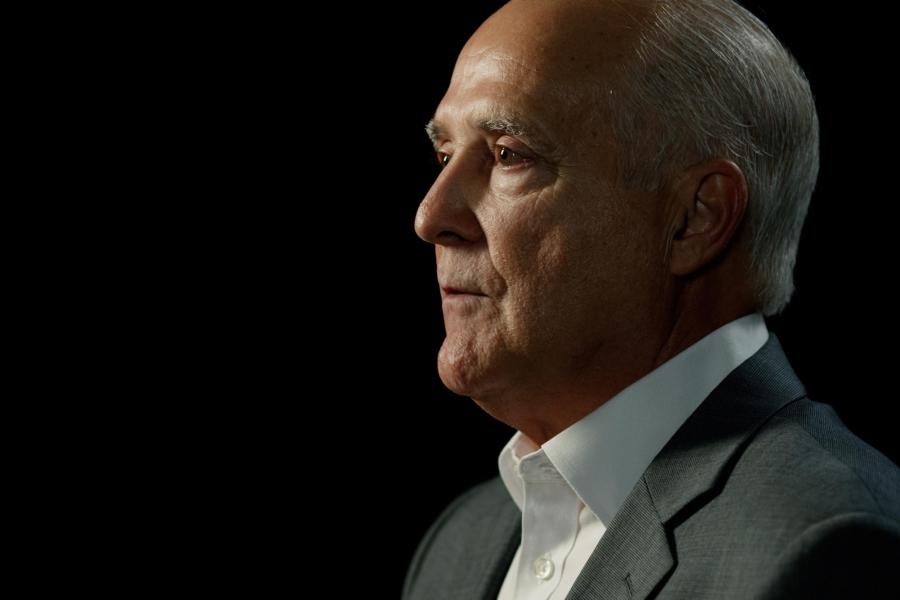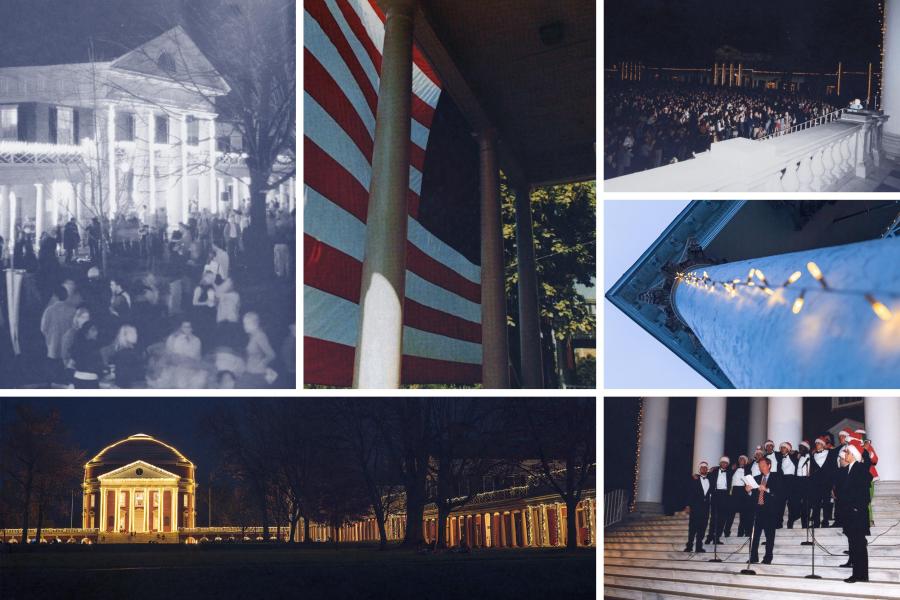Bird said Kirwin would organize forays to the pizza parlor after a football game and make sure everyone in the group got there.
“Glenn, while always being fun-loving, had a tremendous drive to succeed and be very good at everything he pursued,” his brother, Andrew Kirwin, wrote. “He walked on to the UVA baseball team as a catcher. He was an expert skier and then he began running triathlons. His drive and determination, together with his humor and ability to get along with just about everyone, led to his success in business. His path to his position as senior vice president and global head of sales and support of eSpeed at Cantor Fitzgerald literally began with making a pitch on a business idea on the ski lift.”
Kirwin’s paternal side continued after he left UVA.
“When he graduated, he had a job – one of the few guys who came out in 1982 with a job,” Bird said. “He went to New York to live in Lower Manhattan near the World Trade Center, and all these people ended up living on his floor because they didn’t have jobs and they were just getting started and no one had any money and he was taking care of them.”
Bird noted that part of Kirwin’s art was selling himself.
“The first job he had was difficult to get because he was an American studies major,” Bird said. “He had to convince people he knew what he was doing, business-wise.”
Kirwin took economics in his first semester because it seemed natural to him.
“Glenn told me once that you grow up reading the sports page and no one needs to explain the game of baseball to you; you understand it,” Bird said. “No one has to explain football; you get it. You can read the stats and the scores and you understand it.”
Bird said Kirwin had been reading The Wall Street Journal since he was a child and he understood business and finance.
“So he came to UVA for a true liberal arts education and that is why he picked American studies – half American lit and half American history,” Bird said. “He had been doing business his whole life; he knew he was going to go into it. It was hard for him to get his first job, but once he did, then he took off.”
Kirwin became a government bond trader with Citibank in New York City after he graduated. In 1985, he joined Security Pacific Bank, where he pioneered an electronic government bond option trading system, after pitching the idea to a senior bank executive on the Austrian ski lift. He joined Cantor Fitzgerald, a government bond broker, in 1994. Kirwin was in charge of product development at Cantor and was instrumental in pioneering eSpeed, an electronic trading platform.
“There was always that New York brashness of ‘Why can’t I do that?’ and ‘Of course I can do that,’” Bird said. “He just seemed a little bit smarter than the other people in the room and have that New York bravado to carry through with his ideas.”
While the initial thought after 9/11 was to start a scholarship fund to help Glenn Kirwin’s children, the idea expanded to students who had lost people in the 9/11 attacks, which became the first, and now disappearing, criteria.
“And the second criteria is people who have Glenn-like qualities,” Bird said. “And it can go different ways, because Glenn had different sides to his personality.”
Bird said the friends worked with the UVA Alumni Association in setting up the scholarship. Donations initially came from Kirwin’s Sigma Chi fraternity brothers and friends.
“We put a little ad in the alumni magazine and got some answers from that,” Bird said. “The goal was not to pester people forever for money, but to get a good amount of money and be good stewards with the finances of it and we would let it grow organically through the market.”
The scholarship committee initially comprised some of Kirwin’s fraternity brothers and others who lived with Kirwin in college. Glenn’s brother, Andrew, is on the committee, and later Kirwin’s wife, Joan Boswell Kirwin, class of 1983, and even later, his sons, joined the committee.
Benjamin Hicks, who graduated in 2005 with a commerce degree, was the first Kirwin Scholarship recipient. He is now on the selection committee.
“We always interview on Foxfield weekend and we always see if the candidates are going to Foxfield,” Bird said. “Glenn didn’t miss Foxfield. We don’t view Foxfield as a bad thing. We don’t necessarily know the candidates’ grades. It is not a needs-based scholarship, and some of them will give us a story why they need it, and we don’t forget it, but that is not the main thing. Are they doing a lot of things at the school? Are they involved in a lot of things that won’t necessarily get you a Lawn room?”
Bird said some years there are two winners, with each winner appealing to a different side of the Glenn Kirwin personality.
“One might be the more paternal type and the other might be the fraternity type, going to football games and going out afterward,” Bird said. “There is also an entrepreneurial component because of Glenn’s strong entrepreneurial spirit. One might get it because of his or her entrepreneurial idea.”
When the committee is gathered, Bird said, Glenn Kirwin is there with them.
“He’s there because the stories all happen,” Bird said. “We have to explain to Troy or Miles why this person is like Glenn or why they aren’t like Glenn, so you get into Glenn stories – some that you forgot, but someone will spark something.
“It’s been a really big thing for Glenn’s kids. We all get together to eat in the afternoon after the interviews and we will go down to the Corner and they will sit around and feed questions to you, because they were 9 and 7 when he died. They didn’t know that side of him. His sons will pepper questions about what their dad was like, and I think that has made their dad more real and more like a person. But with all of us, you get the stories and you start laughing and it gets emotional.”
Bird said that one thing this experience and his time with Glenn Kirwin taught him is that life balance should be a weekly balance.
“Glenn never seemed like a fast mover, but he ran triathlon and he was very driven,” Bird said. “And he used to race home to read his kids a story before they went to bed because he worked so late. I think his goal was – and this was the sad part – I think he was planning on working a lot of hours and working hard and then retiring early and then being there.
“And then everything changed. That is the tragedy.”
